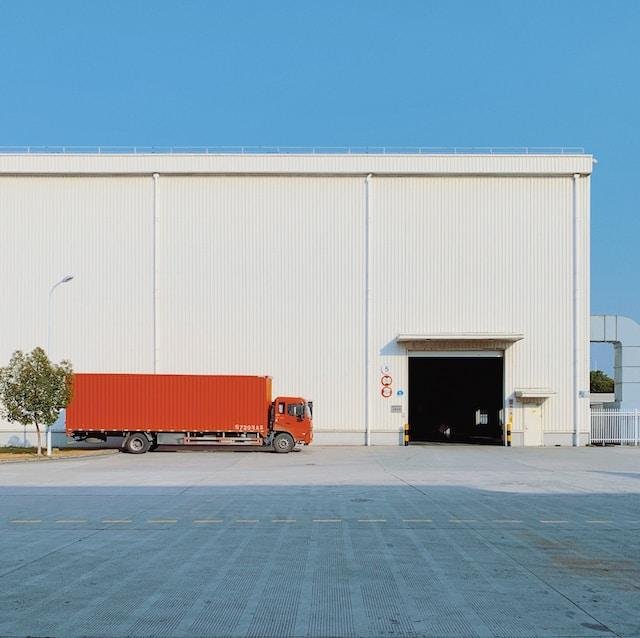
Our food goes through a riveting journey just to get from farms and other sources all the way to our table. The critical role of transportation really shouldn’t be overlooked, but it often is. The reason it’s so important is because it preserves freshness, ensures food safety, and minimizes waste.
When food is handled improperly, the hidden costs extend far beyond the immediate logistical challenges. In this article, we’ll dive into the impact of food transportation issues, shedding light on the hidden costs that affect both consumers and the environment.
- Quality Deterioration and Food Waste
Food transportation issues can result in quality deterioration, ultimately leading to increased food waste. Improper temperature control, extended transit times, and inadequate handling practices can all contribute to spoilage, loss of flavor, and decreased nutritional value.
As a consequence, a significant amount of food that could have been consumed is instead discarded, adding to the global food waste crisis. The impact of this phenomenon on food waste is staggering, further exacerbating food insecurity and environmental concerns.
- Financial Losses for Producers and Retailers
Food transportation issues not only affect consumers but also impose substantial financial burdens on producers and retailers. When products arrive at their destination in suboptimal conditions, such as spoiled or damaged, it leads to economic losses.
Producers often have to bear the cost of unsold products or reduced prices due to compromised quality. Retailers also face financial setbacks as they must discard spoiled items or provide discounts to move products that have deteriorated during transit. These financial losses, ultimately passed onto consumers, contribute to the hidden costs of improper food transportation.
- Environmental Consequences
The impact of food transportation issues goes beyond economic losses and food waste; it also has significant environmental consequences. Inefficient transportation practices, such as excessive fuel consumption, result in higher greenhouse gas emissions and contribute to climate change.
Moreover, the need for additional packaging materials to compensate for poor handling or longer transit times leads to an increase in plastic waste, further polluting our oceans and ecosystems. Recognizing the environmental implications of improper food transportation is vital for building a sustainable future.
- Health and Safety Risks
Improper food transportation can pose serious health and safety risks for consumers. Inadequate temperature control during transit can lead to the growth of harmful bacteria, increasing the chances of foodborne illnesses. Contamination risks may also arise due to improper handling or cross-contamination during transportation.
When consumers unknowingly consume unsafe food, it can result in detrimental health effects, hospitalizations, and even the loss of life. Understanding the direct impact on public health highlights the urgency of addressing food transportation issues effectively.
- Reputational Damage and Consumer Confidence
The impact of food transportation issues also extends to the reputations of food producers, distributors, and retailers. Any incidents of compromised quality, food recalls, or safety concerns can severely damage the reputation of businesses involved in the food supply chain.
This loss of consumer confidence can have long-term effects on brand loyalty and profitability. Rebuilding trust in the wake of food transportation issues requires significant effort and investment, further adding to the hidden costs incurred.
Table of Contents
Mitigating the Hidden Costs
Addressing the hidden costs of improper food transportation requires concerted efforts from all stakeholders involved in the food system.
A. Improving Infrastructure and Technology
- Investment in cold storage facilities and transportation infrastructure: Governments, industry players, and logistics providers should prioritize investments in infrastructure to enhance cold chain capabilities and ensure proper temperature control during transportation.
- Adoption of advanced monitoring and tracking systems: Implementing technologies like the Internet of Things (IoT), Radio-Frequency Identification (RFID), and real-time monitoring systems can improve visibility and traceability throughout the supply chain, facilitating prompt action in case of deviations.
B. Enhancing Supply Chain Management
- Strengthening coordination and collaboration among stakeholders: Encouraging collaboration, information sharing, and effective coordination among producers, distributors, retailers, and logistics partners can minimize inefficiencies and ensure seamless food transportation.
- Implementing efficient inventory management and demand forecasting: Leveraging data-driven technologies and accurate demand forecasting can help optimize inventory levels, reducing the risk of overstocking or understocking during transportation.
C. Strengthening Regulations and Compliance
- Enforcing stricter food safety regulations and standards: Governments and regulatory bodies should establish and enforce robust food safety regulations that are consistent across regions. This ensures that all stakeholders adhere to high-quality standards throughout the transportation process.
- Promoting education and training on proper food handling and transportation practices: Providing training and resources to all individuals involved in food transportation, including drivers, warehouse staff, and logistics personnel, is crucial for promoting proper handling techniques and ensuring compliance with best practices.
Conclusion
Recognizing these hidden costs is crucial for stakeholders in the food industry to implement effective transportation practices that prioritize freshness, safety, and sustainability. By addressing these issues, we can minimize waste, ensure the availability of nutritious food, protect public health, and build a resilient and efficient food supply chain for the future.
For more insightful articles on business and technology, check out Techinfobeez today!